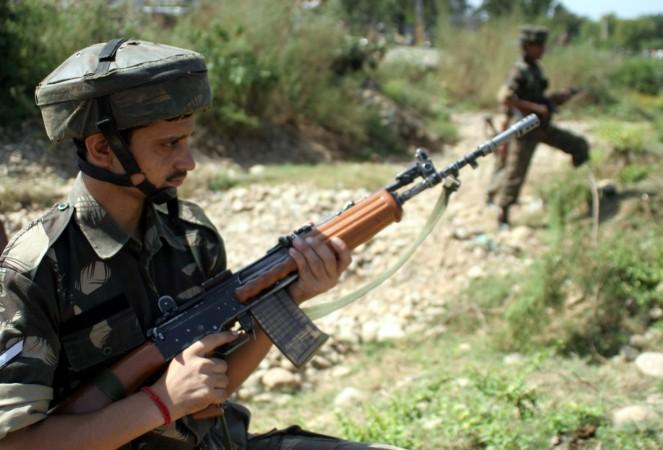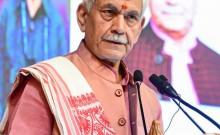
The killing of 45 Central Reserve Police Forces (CRPF) personnel in Pulwama district's Lethpora area of South Kashmir on February 14 has sent shockwaves across the military intelligence and crime branch segment of J&K police. This tragedic incident has signalled a new challenge in tackling home-grown militancy across the valley.
Jaish suicide bomber Adil Ahmad Dar rammed an SUV car containing 350 kilograms of explosives into a bus ferrying CRPF soldiers. This is being considered the deadliest attack on Indian military after the 2010 Maoist attack which led to the killing of 70 CRPF personnel in Bastar, Chattisgarh.
Even as Prime Minister Narendra Modi, National Security Advisor Ajit Doval and Defence Minister Nirmala Sitharam discuss the possible lapses in strategy post the Pulwama attack, top officials in the J&K Police and CRPF were reportedly tipped off about the possible IED attack in the valley.
J&K Police warned CRPF of possible IED attacks?
The Jaish-e-Mohammad outfit had earlier released a statement entailing plans to carry a Taliban-style suicide attack in the valley. However, according to top sources, the security agencies heaved a sigh of relief after the situation was peaceful on January 26, when India celebrated its Republic Day.
The Inspector General, Police Kashmir had communicated to the zonal CRPF heads on February 6 and mentioned the possibility of IED attacks in the valley. The CRPF was told to sanitize the respective areas before the deployment of their sources.
On February 14, nearly 2,547 CRPF troopers in 78 vehicles were returning to their respective deployments in Kashmir after vacations. They left Jammu at 4 am and had reached Lethpora, Pulwama on the Srinagar-Jammu Highway at 3.30 pm on February 14 when the car-bomb attack was carried out.
Violation of security protocols: Should CRPF soldiers have been airlifted instead?
Many army veterans and senior police officials are now questioning the serious breach in a security protocol that led to the tragic incident and also emphasizing the change in tactics of the militants.
Former Army Chief, Bikram Singh on #PulwamaTerrorAttack: It shows change in tactics of terrorists. IED has been used after a long time, IEDs were used in the past, in 2001-2002 when I was there, this was a normal practice of terrorists, then they resorted to firing from distance. pic.twitter.com/07o4dBuG12
— ANI (@ANI) February 15, 2019
Former J&K police Chief, Sheesh Paul Vaid condemned the tragic killing. He also suggested that the incident could have been avoided if the soldiers were airlifted from Jammu to Srinagar instead of making them travel a 300 kilometres long road journey.
Deeply anguished on the 42 CRPF personnel martyred today in the horrific suicide bomber attack planned by the enemies across the border. As I had suggested earlier, it's safer and less time consuming to airlift jawans proceeding on leave from Srinagar to Delhi and back. https://t.co/MQUncKzY7N — Shesh Paul Vaid (@spvaid) February 14, 2019
J&K Governor admits to security failure
The J&K Governor, Satya Pal Malik squarely blamed Pakistan for carrying out the deadly Pulwama attack while also admitting to a lapse in security. Malik said that while the security forces were killing Jaish militants in the encounters, there was no input on the suicide bombing squad among them, reported the Indian Express.
The very fact that the bomber used such a heavily explosive-laden vehicle in a highly guarded area points at the failure on the part of the security agencies, said Malik.
J&K Governor Satya Pal Malik to ANI: Pakistan is frustrated, after successful elections they could not recruit new terrorists, stone pelting has stopped, so it wanted to do something. We have alerted all installations and cantonments as Pakistan may do something else. (File pic) pic.twitter.com/gBEQCyB8sv
— ANI (@ANI) February 15, 2019
The suicide bomber, Adil Dar was definitely on the wanted list of the security forces but he must have escaped to the mountainous areas, he added.

















